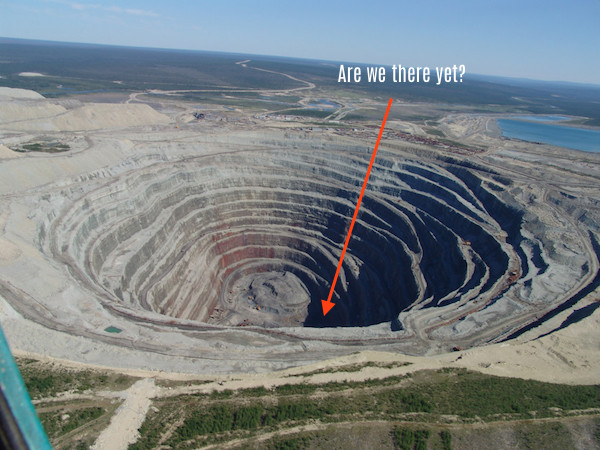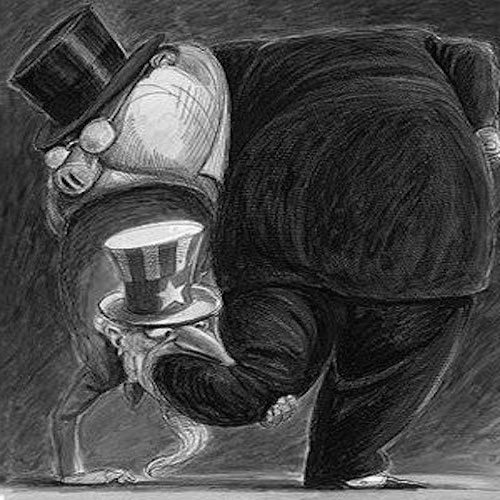by Ben Carlson, A Wealth of Common Sense
One of the outcomes from the recent financial crisis is what I consider to be a hypersensitivity to risk by many investors who were caught flat-footed during the market crash. While managing and understanding risk is one of the most important jobs an investor has, I think many have taken things a step too far by trying to micro-manage every minor blip in the markets.
The results from a new survey of institutional investors about the biggest perceived risks in the markets is a prime example of this. Here’s what these investors had to say via Think Advisor:
AllianzGI also used the survey — which is based on interviews with 735 institutional investors across North America, Europe and Asia-Pacific during the first quarter of 2015 — to find out what are perceived threats to portfolios.
Equity market risk stands out as the greatest perceived threat globally by institutional investors, with 80% of respondents globally identifying it as a threat. Additionally, 76% of institutional investors deem interest rate risk the most significant threat to their portfolios over the next 12 months.
According to the findings of AllianzGI’s third annual Global RiskMonitor survey, other perceived threats to portfolios over the next year include foreign exchange (FX) risk (68%), credit risk (67%), commodity risk (64%), counterparty risk (61%), liquidity risk (60%), inflation risk (53%) and event risk (53%).
So the two biggest risks laid out by these institutional investors is lower stock prices or lower bond prices. So, losses. It’s not exactly groundbreaking research to show that investors are nervous about losing money, but I think this survey is very telling that many investors, even after the enormous recovery we’ve seen in the ensuing six years following the crash, are still once bitten, twice shy.
A few questions come to mind when reading something like this:
- Are these investors looking at risk the right way?
- Will they make portfolio changes because of these perceived risks?
- Do they have risk management plans in place or do they plan on making changes after the markets fall?
- Do they understand their current risk exposures?
- Do their portfolios reflect their ability, need and desire to take risk in the markets?
- Will they be proactive or reactive in terms of risk management?
- Have they set realistic performance expectations on the asset classes and investments that are included in their portfolios?
- Do they have guidelines in place that they can follow in the event that their greatest fears are realized or will they be making discretionary decisions during the next upheaval?
- Are they comfortable with their current portfolio positioning regardless of which way the markets move from here?
I’m always amazed by the number of professional and individual investors I talk to that have no formal plan or guidelines in place to deal with portfolio losses and risk. It comes with the territory when dealing with the financial markets, yet some investors don’t think about losses until after they occur. I always like to say that it’s not your actions that make the biggest difference, but your reactions.
There is one risk that these professional investors failed to mention, which I happen to think is always the biggest risk for investors, no matter what’s going on in the markets:
I was asked in an interview this week, "What is the single biggest risk for investors right now?"
My response: "Themselves, as always."
— Ben Carlson (@awealthofcs) July 14, 2015
It’s not exactly the sexiest answer you’ll hear or the most actionable tactic you’ll receive today. What investors have to realize is that risk never completely goes away no matter what changes you do or don’t make. It just comes in different forms depending on the stance you take. But there’s something to be said for knowing yourself and knowing your own portfolio.
Source:
The Diagnosis Is In: Investor Hypochondria (Think Advisor)
Further Reading:
To Win You Have to be Willing to Lose
The Struggle to Define Risk
Subscribe to receive email updates and my quarterly newsletter by clicking here.
Follow me on Twitter: @awealthofcs
My new book, A Wealth of Common Sense: Why Simplicity Trumps Complexity in Any Investment Plan, is out now.
Copyright © A Wealth of Common Sense














